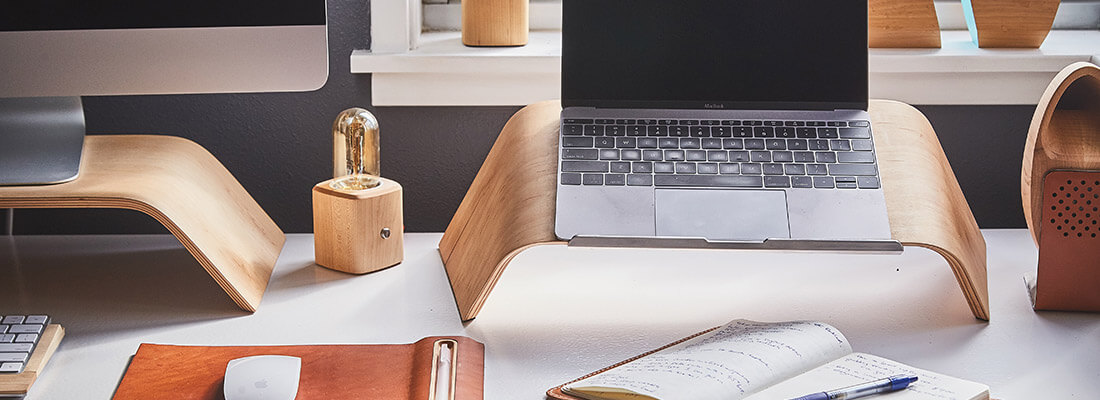What expenses can I claim through my limited company?
Understanding what expenses your business can claim is an integral part of running a successful and tax-efficient business. At our accounting firm, we’ve observed that UK businesses lose out on millions in unclaimed taxes every year.
Knowing where the opportunities are for your business to claim tax relief will ensure you never overpay tax.
In this blog, our accounting firm will cover the allowable expenses your business can claim and provide tips on keeping track of your expenses for accurate records.
What is tax relief?
Tax relief is essentially money you can claim back for things that you use in your business if you either run a limited company or set up as self-employed (sole trader).
The expenses you claim need to be “wholly, exclusively or necessary” for your business. These allowable expenses are set against your company profits and, therefore, reduce the amount of corporation tax your business pays.
If you purchase items that are used by you personally, then you cannot claim allowable expenses. You’ll need to complete a P11D expenses form for HMRC to ensure the correct amount of personal tax is paid. Equally, your business will pay National Insurance on the cost of the item as well (the 2018/19 rate is 13.8%).
How to claim business expenses on items you personally paid for
If you are running your own limited company, the lines between your personal life and business can easily crossover. Whilst they’re connected, in the eyes of HMRC they’re legally separated too. This means financial matters can get a bit confusing, especially when it comes to business expenses.
You need to keep a record in your accounting software of the items you’ve purchased personally that are necessary for the running of your business.
Mobile apps such as Receipt Bank and AutoEntry make it easy to keep digital records of receipts and invoices. This is particularly useful because businesses are legally obliged to keep receipt information for a minimum of six years. Simply take a photo of your receipt and relevant information is sent directly to your accounts software.
When you put your own money into your business, this is added to your director’s loan account. The amount you paid personally can be reimbursed at any time, usually by way of a director withdrawal. This reduces the amount the company owes you through your director’s loan account.
If your business has employees, they can also claim expenses. With this in mind, it’s good practice to have an expense form and company policy in place.
Company formation costs and accountancy fees
The costs associated with setting up your company are business expenses that you can claim tax relief on. This covers all associated business expenses, such as printing to the required equipment. Accountancy fees or mandatory formation fees are also tax deductible.
The fees you pay your accountant for preparing your company accounts are equally tax-deductible – providing that the time spent is purely for your company affairs. If for example, your accountant completes your personal tax return, this can be included in your accounts but is taxable. This is recorded as a BIK (benefit in kind), and your business will pay National Insurance on this.
Travel expenses and business mileage
You can claim tax relief on the vast majority of travel expenses. Here is a full list of the travel expenses you can claim for:
- Vehicle insurance
- Repairs and servicing
- Fuel
- Parking
- Hire charges
- Vehicle licence fees
- Breakdown cover
- Train, bus, air and taxi fares
- Congestion charges and tolls
- Hotel rooms
- Meals on overnight business trips
Drive safely – you can’t claim expenses on any fines you receive!

If you’re using a car, van, motorbike or bike for business purposes, you can claim expenses on the mileage used to make a business journey. The travel you are undertaking needs to be entirely necessary for business and doesn’t include the morning commute you make from your home to the office.
You can currently claim the following rates for business travel:
At the moment, we use a spreadsheet for tracking business mileage, which you can download here. However, there are apps available, such as MileIQ, that track mileage automatically when you drive. You simply swipe left for a personal journey and right for business travel, and you can easily add any other business expense you incur (fuel, parking etc.) as part of your business travel.
Using your home as an office for your limited company
HMRC allows you to claim £4 per week without keeping any detailed records – £208 over the year.
Good news! Furthermore, HMRC doesn’t believe this to be a ‘benefit in kind’, so you won’t have any personal tax to pay through your Self Assessment tax return.
You’ll need to prove that you regularly work from home and not spending the majority of your time either at client offices or on-site.

Renting your office to your business
It’s possible to rent your personal office space at home to your business and claim that as an expense. You’ll need to declare these earnings on your Self-Assessment tax return, so they’ll be subject to further taxes after you’ve deducted your expenses.
HMRC requires you to:
- own the property
- class any money over the annual £208 amount as rental expenses
- create a rental agreement between yourself and your limited company
- specify within your rental agreement that the rental fee is for use of the office at specific times of the day
- set a reasonable rental fee
HMRC rules around renting your office to your business are complicated. With this in mind, speak with an accountant for advice in this area.
Business expenses on office equipment
The cost of anything that’s essential for your duties as a director will receive tax relief. This covers computers, printers and software subscriptions.
You may also claim tax relief towards the cost of furnishing an office, for example on purchases such as chairs, desks and bookcases. In addition, if you work from home it’s also possible to claim tax relief on office furniture. Office furniture isn’t treated as a ‘benefit in kind’ – providing personal use of the furniture is insignificant. This means you won’t have to pay personal tax on any items.
Tax relief on mobile, landline and broadband for limited companies
Similar rules apply for the expenses you can claim on mobile, landline and broadband costs. You can claim allowable expenses if you purely use a landline and phone contract for business use. Make sure that these contracts are in the name of your business and you won’t have to pay personal tax.
It’s possible for your company to pay your entire personal phone bill on your behalf. You’ll need to pay a ‘benefit in kind’ charge on the total amount of the bill and your company will need to pay National Insurance.
If you work from home and use your residential broadband, you cannot claim tax relief if the broadband was already in place – unless you can clearly split the business from what you use personally. You might want to have a separate broadband line for business.
If you have no broadband contract at home and like most businesses require internet access, the costs can be reclaimed from your company, and there is no need to pay a ‘benefit in kind’ charge.

Claim expenses on company training
It’s possible to claim for company training, providing it supports the skills and knowledge you already use for your job. HMRC often refuse expense claims for courses such as MBAs, as they offer new skills and knowledge rather than building on existing skills. However, there are exceptions to this, providing you can prove that the MBA you’re undertaking is improving your existing knowledge.
Private medical insurance expenses
Your company may provide financial support towards private medical insurance for employees. This is regarded as a ‘benefit in kind’. Employees will need to pay personal tax on the insurance and your company will pay National Insurance.
Claiming entertainment expenses through your limited company
In most circumstances, entertainment expenses are not tax deductible – even if it is a genuine expense incurred in your business.
If you’ve incurred the cost of business entertaining personally (perhaps whilst networking), you may be able to claim the expense as being incurred in the performance of your duties as a director. However, these costs would be disallowed from the company profits. This means that the net effect is the same as not claiming the expenses in the first place.
Final say on claiming expenses through your limited company
As you can see, there are plenty of opportunities for your limited company to claim tax relief on things for your business. If there’s one take-home message, it’s to ensure that when your business claims expenses, they’re reasonable. This means no hotel rooms at the Savoy or meals out at Claridge’s for business trips!
To sum up, the expenses you claim need to be “wholly, exclusively or necessary” for your business.

